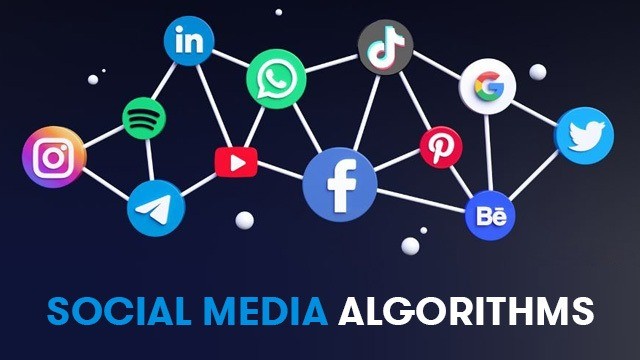Social Media Algorithms are playing important role today. Social media platforms like Facebook, Instagram, TikTok, and YouTube have become an inseparable part of our daily lives. But have you ever wondered why certain posts, videos, or ads appear on your feed while others don’t? The answer lies in social media algorithms – owerful systems that shape what we see online. While these algorithms make our feeds more personalized, they also impact our behavior, opinions, and even mental health.

What Are Social Media Algorithms?
Social media algorithms are sets of rules and calculations used by platforms to decide what content appears in your feed. Instead of showing posts chronologically, these algorithms analyze your behavior likes, shares, watch time, and interactions – to deliver content you’re most likely to engage with.
For example:
- If you watch cooking videos, you’ll see more recipes.
- If you follow fitness pages, you’ll see workout content.
- If you click on a certain ad, similar ads will keep appearing.
Positive Impacts of Social Media Algorithms
1. Personalized Experience
Algorithms create a customized feed, saving users time and showing content that matches their interests. This makes platforms more engaging and enjoyable.
2. Content Discovery
They help us discover new creators, trends, and products we might never find on our own. For example, TikTok’s “For You Page” introduces users to a variety of short videos tailored to their interests.
3. Business Opportunities
For small businesses and content creators, algorithms can boost visibility. If content resonates with audiences, it can go viral and reach millions without heavy advertising costs.
Negative Impacts of Social Media Algorithms
1. Echo Chambers
Algorithms often show us content similar to what we already believe. This can limit exposure to diverse opinions and create echo chambers, where we only see one side of an issue.
2. Addiction and Overuse
By constantly feeding users engaging content, algorithms can encourage endless scrolling. This often leads to social media addiction and wasted time.
3. Mental Health Effects
Curated feeds filled with “perfect” lifestyles can lead to feelings of comparison, anxiety, and low self-esteem – especially among younger users.
4. Spread of Misinformation
Algorithms prioritize engagement, not truth. Sometimes, sensational or misleading content gets boosted simply because it receives more likes and shares.
How to Use Social Media Wisely
- Be Aware of the Algorithm – Remember, what you see is not the full picture. Explore content outside your feed.
- Limit Screen Time – Set boundaries to avoid endless scrolling.
- Follow Diverse Sources – Broaden your perspective by following pages with different views.
- Fact-Check Information – Don’t blindly trust viral posts – verify news from reliable sources.
Final Thoughts
Social media algorithms are not inherently good or bad – they are tools designed to maximize engagement. While they provide personalized content and opportunities for creators, they also influence our thinking, emotions, and habits. The key is awareness. By understanding how algorithms work, we can use social media mindfully instead of being controlled by it.
In the digital age, knowledge is power. Be intentional about what you consume, and let algorithms serve you – not control you. Also check Best Free Online Resources to Learn Coding – 2025
